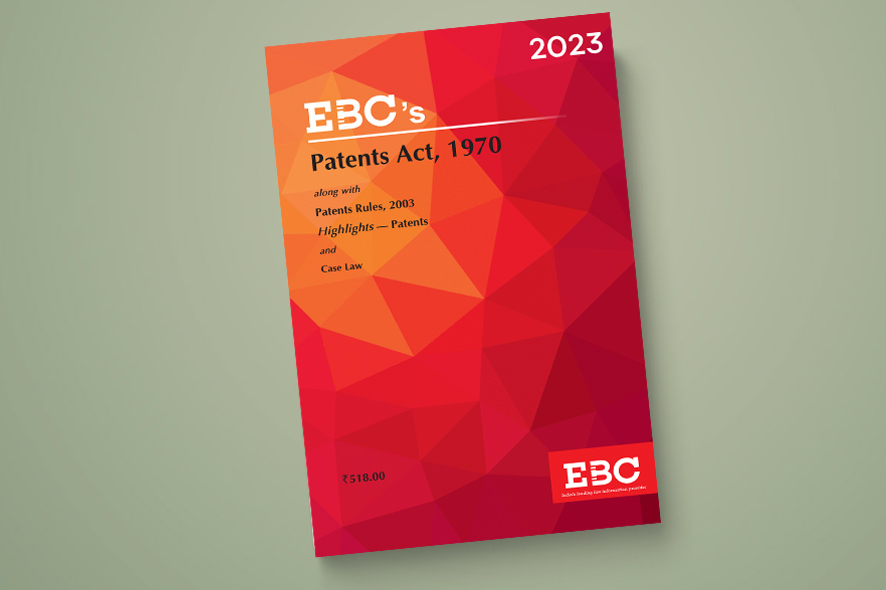Delhi High Court: Prathiba M. Singh, J.*, opined that though no specific time period was prescribed for passing of orders after concluding oral hearings, the Patent Office was expected to pass the same within a reasonable period and such a reasonable period could not be beyond three to six months in any case. The Court thus set aside the impugned order where appellant’s patent application was rejected and further, directed the Patent Office to reflect the change of status of appellant’s application on its website and show the same as pending.
Background
Appellant filed the appeal challenging the impugned order dated 08-10-2018, passed by respondent, whereby appellant’s patent application titled ‘DETERGENT COMPOSITIONS’ having a priority date of 22-02-2005 was refused on the ground of lack of inventive step under Section 2(1)(ja) of the Patents Act, 1970 (‘the Act’), citing two prior arts. Appellant submitted that the impugned order was passed by the Deputy Controller, four years after the oral hearing of the subject matter on 29-09-2014. It was further submitted that under Section 8(2) of the Act, certain clarifications were sought through an e-mail notice dated 05-10-2018 and applicant had six months’ time to furnish the requisite details and to respond to the e-mail of the patent office. However, without waiting for appellant’s reply, the patent application was refused on the ground of lack of inventive step. Thus, it was submitted that the impugned order was not sustainable on these grounds as the same was contrary to the principles of natural justice.
Analysis, Law, and Decision
The Court noted that after the matter was reserved for orders on 29-09-2014, a notice under Section 8(2) of the Act was issued by the Patent Office on 05-10-2018. The Court opined that this communication having been issued four years after matter was reserved for orders, the Patent Office ought to have waited before passing the final order, however, the impugned order was passed on 08-10-2018, that is, on the next working day itself.
The Court opined that this manner of dealing with a patent application was extremely arbitrary and whimsical and when the judgment was reserved on 29-09-2014, there was an obligation on the Hearing Officer to pass orders within a reasonable period. The time of four years which had been consumed was completely contrary to the scheme of the Act and Rules and frustrated the purpose of patent filings as this entire period in fact works against appellant who loses the life of the patent. Further, the Court opined that the Patent Office, after having sought a clarification and certain documents on 05-10-2018 suddenly proceeded to pass orders rejecting the patent application on 08-10-2018 without giving an opportunity to appellant to deal with the issues raised in the communication of 05-10-2018.
The Court opined that such a course of action by the Patent Office would be contrary even to the Patent Rules, 2003 (‘the 2003 Rules’) which required the Patent Office to give at least a period of six months in respect of information sought under Section
The Court also opined that though no specific time period was prescribed for passing of orders after concluding oral hearings, the Patent Office was expected to pass the same within a reasonable period and such a reasonable period could not be beyond three to six months in any case.
The Court thus set aside the impugned order and directed the Patent Office to reflect the change of status of the present application on its website and show the same as pending within two weeks and upon the same being reflected as pending, appellant shall, by 15-01-2024 respond to the notice dated 05-10-2023 and furnish all the requisite information by 15-01-2024. Thereafter, a hearing should be held in the first week of February 2024 and upon its conclusion, the final order might be passed within three months.
The Court held that a fresh hearing should be held on all the objections which were already raised in the hearing notices, but no fresh objections should be raised; the matter should be heard afresh, and a final decision should be taken.
[Procter and Gamble Co. v. Controller of Patents and Designs, 2023 SCC OnLine Del 7832, decided on 08-12-2023]
*Judgment authored by: Justice Prathiba M. Singh
Advocates who appeared in this case :
For the Appellant: Hari Subramaniam, Sanuj Das, Advocates
For the Respondent: Harish Vaidyanathan Shankar, CGSC; Srish Kumar Mishra, Alexander Mathai Paikaday, Krishnan V., Advocates








“Greetings everyone! I came across this intriguing news piece, and it really got me thinking. The perspective shared in the article offers a unique angle . I find myself pondering the implications and wondering how this might shape
Some blogs may have specific guidelines for commenting. Make sure to follow these guidelines to ensure that your comment is in line with the blog’s policies.